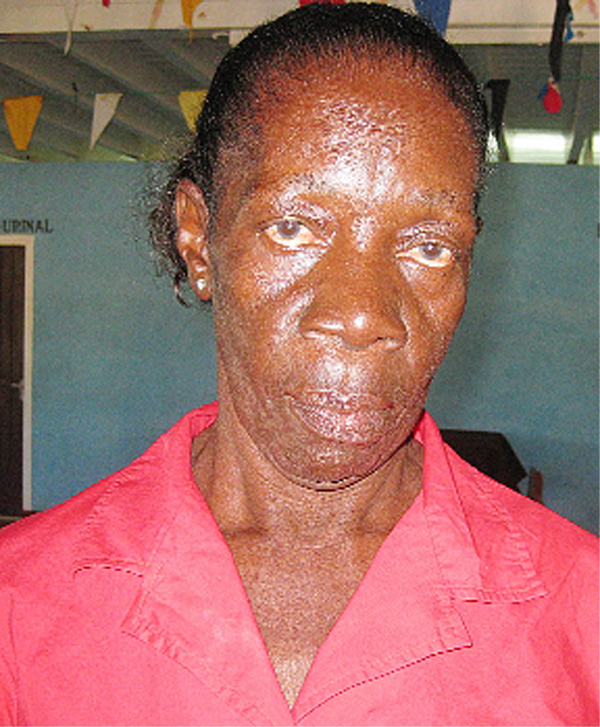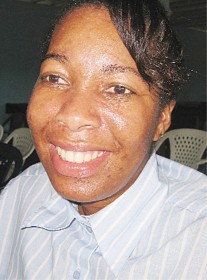This week on What the People Say, members of the Community-based Rehabilitation Programme (CBR) commented on the challenges that differently-able people are faced with and what they would like to see for the way forward.
Photos and interviews by Shabna Ullah
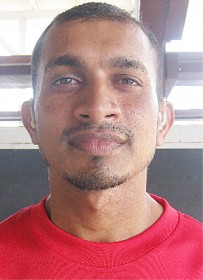 Arshad Mc Doom, CBR volunteer/shop-keeper:
Arshad Mc Doom, CBR volunteer/shop-keeper:
`I do a little business but it is not working out because I am not getting much sales and most people want items on credit. Then it is difficult for me to get the payment. I live in a renting house with my mother and although we have our own land we cannot afford to build a house. I hope the government and concerned persons can assist us in building a house so that the land would not get repossessed. Right now my hearing aids are not working. I need another pair but I cannot afford the cost. I would like to see persons with disability being treated fairly. Many of us have stopped getting public assistance.’
George Stanley, CBR volunteer/nurse: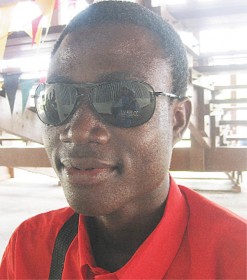
`I would like to see more people from the public take up the challenge and work with differently-able persons so we can have equality in society. These persons are being deprived of moving around freely with public transportation and from attending school and having an education. Society on the whole put a blank on people with disability. My hope is that we would have the building soon on the land that was allocated for that purpose at Lovely Lass.’
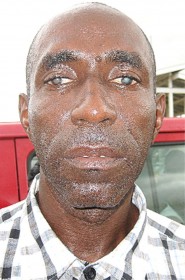 Mark Archibald, chairman of Disabled Organization, Region 5/farmer:
Mark Archibald, chairman of Disabled Organization, Region 5/farmer:
`The challenges disabled persons face is that there are no ramps or facilities on buildings for persons with disability. We are also treated as though we have no value. I am happy that the CBR has helped me to recognize my dreams. I was in the army when I became blind after an injury. For three years I sat around not knowing what to do; life had no meaning to me. Then I met with the chairman of the national CBR, Mr. Glasgow and he gave me information on the CBR in Region 5. After going there the coordinator and volunteers encouraged me and helped me to realize my dreams. I picked up the fork and cutlass and started to cultivate my land. I have been supplying vegetables to the community and the little I am earning has helped me to send my children to school. It had paid for my son’s CXC exams and now he is an engineer in the army. I was also able to renovate my house which was leaking and did not have a back wall. President [Bharrat] Jagdeo had also given me some zinc sheets. I would like to see the bill passed for disabled persons so that we would be more recognized because we have a lot of potentials. Persons with permanent disability should not have to do a review all the time and they should have access to public assistance.’
`My challenge is that the street where I live at Paradise on the East Coast is in a terrible condition and I cannot get to manoeuvre with my wheelchair. Right now the chair is not working properly; the street caused the brakes to go bad. It is very hard to go out because vehicles do not want to come in the street to pick anyone up and when they do come in it takes a long time. If I call a taxi it would cost $2,500. We also have a problem in getting water and I have to pay people to fetch water for me – it is very difficult. I was not born this way but I had a pinched nerve at age 16 and I could not walk again. I was given a paper since then to see a neurologist, Dr. Spann and I am now 29 and I still did not get to see him. I am still hoping that one day I would get help and I would be able to walk again. My dream is for people with disability to have easy access to transportation and education.’
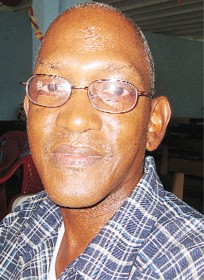 Clifton Bradford-Charles, CBR volunteer/treasurer for Region 4 CBR:
Clifton Bradford-Charles, CBR volunteer/treasurer for Region 4 CBR:
`I have been physically-challenged since 1997 after I was injured while working with Barama as a seaman. My challenge is that I was never able to get a job since then. But I started to volunteer; I am also the secretary for persons with disability. I find that society does not respect people with disability; they look at you and call you all sorts of names. I want disabled persons to be respected because aside from our challenges we are one human being. We asked many years now for our bill to be passed in parliament. We want that to happen so that we would get equal rights like everybody else.’
Panzie David, poultry rearer/CBR volunteer: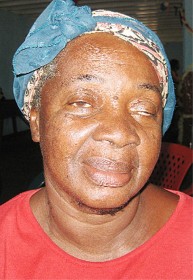
`I am not able to use my left hand and foot but despite my disability I still rear chickens and lant my garden to make a living. I also assist people to get registered for birth certificates and I counsel victims of domestic and child abuse. Some of them think that they would no longer be accepted in society. I think that the perpetrators of domestic violence need assistance; many times after talking to them I get them to stop abusing their partners. I would like to see unity and communication for people with disability.’
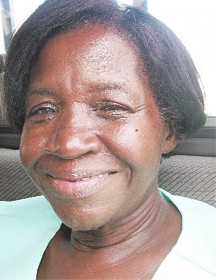 Gwendoline Glasgow, volunteer/trainer/regional coordinator, National CBR:
Gwendoline Glasgow, volunteer/trainer/regional coordinator, National CBR:
‘I have a daughter who is differently-able so I became involved as a volunteer. Some of the challenges I observed is that there is a lack of facilities to accommodate persons with disability, especially physical disability like my daughter who was never able to attend school. The legislation was not passed to make it possible. My daughter is a brilliant girl and if there was an environment for her to learn she would have done well. I met a woman from India who said that another woman from her country with a more serious condition than my daughter was able to get a bachelor’s degree. Education is the key and I would like to see the legislation passed and the law enforced so that persons with disability can be accepted at all levels. At the University of Guyana persons in wheelchair would be discriminated against at the Health Sciences department. There are no ramps or elevators to access that department.’
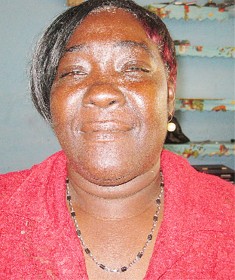 Gloria Lindo-Woolfe, Chairperson, Region 5 CBR:
Gloria Lindo-Woolfe, Chairperson, Region 5 CBR:
`I deal with people with disability on a daily basis and I know that they face a lot of challenges. Some with permanent disabilities are no longer receiving their public assistance. They are bed-ridden and they cannot get to do the medical for the review. That is a serious challenge for them because they feel neglected. They also have a difficult time getting transportation; vehicles do not stop to pick up persons in wheelchairs and walking aids. We need some permanent bus to pick them up. It is also difficult for them to access jobs. I would like to see these persons move about freely and for them to get back their social security books. Social workers should visit them to see them in bed.’
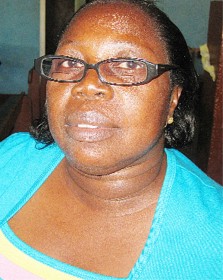 Deslyn Fraser, coordinator, Region 5 CBR/nurse:
Deslyn Fraser, coordinator, Region 5 CBR/nurse:
`We need the voices of the differently-able people to be heard because most of the time they are not accepted in society. We want to make a difference in Region 5; we want to see these persons have access to education and jobs. Some of the successes we have so far in the region are the literacy programmes. Two trained volunteers are also attached to schools and there is also screening and early identification of children with disabilities. They are then referred for physiotherapy at the Fort Wellington Hospital. I would like to see the construction of the resource unit started [at Lovely Lass] and the disability bill passed by this year end because those persons have the same rights as those who are able-bodied.’
Clarine David, CBR volunteer: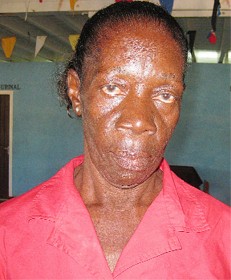
`I would like to see more communication between the volunteers and disabled persons and I would like to see persons who have never gone to school turn out. I joined the CBR because I have a sister with a disability and I am able to understand her and others. I am happy that I am able to work with them. A child who cannot walk properly got the opportunity to attend school because her brother volunteered to take her. She recently wrote the Grade Six exams and she passed to go to Mahaicony Secondary. She is a brilliant child. Other persons with similar conditions can have opportunities too. My hope is that differently-able persons are accepted in society like normal people.’
